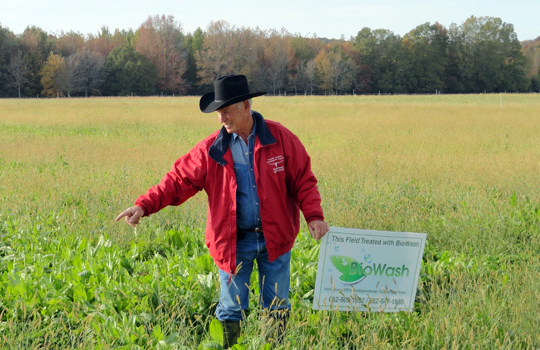How Do Farm Fertilizers Work?
Anyone involved in farming knows that farm fertilizers work, but do you know why? Biology 101 reminds us that plants require essential nutrients to grow. Repeated harvesting of crops on a plot of land depletes the soil of those essential growth elements. Agricultural fertilizers work by replenishing the soil with the nutrients necessary for productive plant growth.
Advantages
The advantage of correctly applying a chemical farm fertilizer is that a farmer can achieve quick results with little effort. It’s always rewarding to see plants sprout up quickly and be lush and green. Farm fertilizers are also easily available (they’re available in any garden supply store) and simple to apply. But, their repeated use does have its problems…..
Disadvantages
The simplicity of farm fertilizer application is sometimes its biggest drawback. Many users have the mentality that “more is better” when, in the case of chemical fertilizers, more can be disastrous. If overused, farm fertilizers can actually hurt the productivity of the soil. By the time the farmer figures it out, the growing season can be half over, a major impact on farm profits and yield. Farm fertilizers can also negatively affect water supplies through run-off and exposure to fertilizers can be detrimental to human health.
What Are Farm Fertilizer Boosters?
Farm fertilizer boosters are products that improve the effectiveness of farm fertilizers. They do this by helping the plants more efficiently absorb moisture and essential nutrients. This efficiency helps reduce the amount of fertilizer needed to produce greater growth and yields, thus reducing fertilizer costs and the negative impacts on the environment and on people.
How BioWash Helps You
BioWash represents the crème del a crème of farm fertilizer boosters. Field tests reflect that applications of BioWash dramatically increases plant productivity and yield, reduces insect damage because of increased BRIX (sugar content) in the plant (some insects can’t digest plant sugar); offers added freeze protection (down to 27 degrees) and help increase profits. In the process, farmers can use less chemical fertilizers, at less cost to them and the environment.

